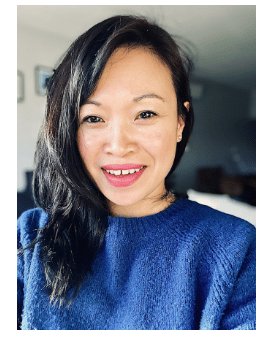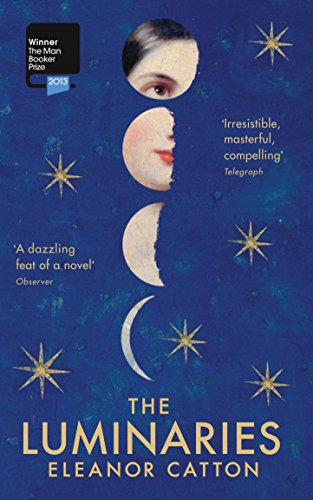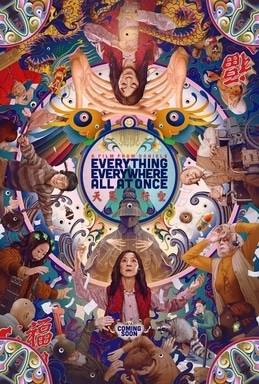We’re thrilled to introduce the 2022 Oregon Literary Fellowship recipients with individual features on our blog! Out-of-state judges spent several months evaluating the 400+ applications we received, and selected nine writers and two publishers to receive grants of $3,500 each. Literary Arts also awarded two Oregon Literary Career Fellowships of $10,000 each. The 2023 OLF applications are open now. The deadline to apply is Friday, August 5, 2022.

Genevieve DeGuzman writes poetry and fiction. A recipient of the 2022 Oregon Literary Fellowship, her work appears in Five:2:One, Iron Horse Literary Review, RHINO, phoebe, SAND, Strange Horizons, Uncanny Magazine, and elsewhere. In 2021, she was featured in the Poetry Moves program in collaboration with C-TRAN. Other honors include residencies and fellowships from Cuttyhunk Island Writers’ Residency, Vermont Studio Center, and Can Serrat. She is currently working on a poetry collection and novel and lives in Portland, OR.
Category: Writer of Color Fellowship – Poetry
Pronouns: She/Her
Q&A with Literary Arts
Who are some writers you look up to or who move you to write?
In poetry, I’m consistently enamored with the work of poets Traci Brimhall, Aimee Nezhukumatathil, Franny Choi, Natalie Diaz, Ada Limón, Mary Szybist, Terrance Hayes. Also, there are individual poems I discover from poets in literary magazines that seemingly come out of nowhere to gut-punch me. One recent poem to do that is “Sand Flats, UT” by Emily Lawson.

In fiction, I’m always excited to read the latest speculative-leaning work from Karen Russell, Ben H. Winters, Lauren Groff, Margaret Atwood, Kazuo Ishiguro, Colson Whitehead, David Mitchell. I’m super excited to get into A Tiny Shove Upward by Filipina-American Melissa Chadburn, What Strange Paradise by Omar El Akkad, and Cursed Bunny by Bora Chung. I also recently finished Danya Kukafka’s Notes on an Execution and found it a revelation. I can’t talk about all the books that floored me, but I’ll just mention Eleanor Catton’s The Luminaries. It’s a doorstopper of a book, a Dickens-style whodunit that takes place in gold rush-era New Zealand. It’s intimately gothic and atmospheric, but also postmodern and edgy, especially because Catton unrolls the story through multiple viewpoints and uses astrological logic to structure the story. I was utterly immersed for the 600+ pages.
What are your sources of inspiration? Of joy?
Not owning a car and being a regular bike commuter has been key to being joyful in my day to day. I don’t even own a fancy bike (my bike is a humble three-speed with an internal hub). I just find riding extremely satisfying with so many benefits to the wallet and health. Something about using your body to move your body—is so very grounding. I’m not sure how it affects my art, but I can say it’s one way to feel perpetually young and adventurous (remember riding your bike as a kid??—THAT feeling all the time). Riding never feels like a waste of time or claustrophobic and rage-y like it does when traveling by car and sitting in traffic, and it has changed my whole relationship to our urban spaces. Biking is also great for people-spying, nature-watching, traffic-skipping, downhill bombing—which is all fuel for the writing furnace.
How would you describe your creative process?
At the outset, it generally starts when several unrelated things, say, two incongruous ideas or images—from an observation, something I read—suddenly come together. That’s the initial spark, the first kiss from the muse, that sets my brain on fire, sets it going to seek out weird connections. From there, my process settles into a routine. Discipline > flights of fancy. I simply make space to write on a regular basis and give myself attainable, concrete goals. But I’m not a masochist. I don’t adhere to strict daily word counts or outlines in the traditional sense, but I will sketch out key details or milestones I want to achieve over, say, two weeks or a month of writing. For fiction, I might write out scenes and short summaries of what I want my characters to do, what I want to emphasize for a plot, or what I want to highlight in a setting. For poetry, I’ll browse my notebook or Notes app where I keep an ever-growing inventory of imagery and phrases, hoping to discover a line or verse, or premise that might grow into a poem or help expand another poem.
Eventually, I get from A to Z on a project, though the actual events and sequence of those events, particularly in fiction, depend on how the characters develop. For weeks, I might just let the characters take the driver’s seat. At this point, writing becomes a kind of controlled hallucination. I’ll write a lot throwaway pages whose sole purpose is to allow me to get inside the heads of these characters. The idea is to create people who have fully realized lives, lives that exist before the story in the book and could presumably go on after. This way of story-making has led to interesting subplots and bursts of discovery.
What is most exciting about receiving a fellowship?
I’ve applied every year for the fellowship since 2018, sometimes in poetry, sometimes in fiction. Finally being recognized after several tries has been an honor, a surprise, and a relief (because I guess I’m doing something right??). I know there are wonderful anecdotes of writers breaking out early in their careers with some debut work on the first try, but I have a feeling the majority of us spend years toiling quietly without much recognition. While earning any one fellowship or award won’t make you a writer, it certainly feels nice! I can definitely say that being an OLF this year, after a rough couple years of the pandemic, was life-affirming and validating.
Winning the fellowship also makes me feel part of the larger literary community here in Portland. It can be tough being a writer, especially if you don’t have an MFA (I don’t) or come from academia, which comes with a built-in identity and pedigree. Self-doubt, rejection, isolation, imposter syndrome—those are real struggles for a lot of writers who don’t have institutions to lean on, myself included. The fellowship can feel like cover, like finally having a passport that lets me move through those circles a little more comfortably.
What are you currently working on?
I have one completed novel that is making its rounds in the querying process, a new novel that I started writing just this year, and a poetry manuscript that I am now revising. Three projects, all in different stages of becoming!
The completed novel is set in a world where people have lost the ability to dream. An underclass of workers who work at the Emporium design and build dreams for the afflicted. When a body is found near the Emporium and an investigation launched, a detective with a checkered past and a celebrated Emporium prodigy form an unlikely alliance as the two women discover a growing threat at the Emporium—and learn their own complicity and entanglements with it. The book is a speculative noir that I’ve likened to Blade Runner meets Inception with a tangled sisterhood at its heart.
For the poetry project, I have been drawn toward a specific aesthetic: themes of yearning and loss refracted through a speculative lens of imagined, post-human futures. The collection tracks various relationships gone awry—with lovers, with one’s own body, with the time continuum, with various objects, and animal life. It is an exploration of apocalypses at different registers and travels a continuum from human to non-human and back again, where an odd assortment of characters share a connected narrative.
What has kept you writing through the pandemic? Has your process changed? Has the content changed?
During most of the pandemic, I just stopped thinking about outcomes and focused on the fun of inventing complex, messy fictional people and interesting stories. (I wrote mostly fiction during the early part of the pandemic.) Also, I took a lot of naps. Napping gets you through a lot!
Did it change my process? With the social restrictions and lockdowns, it actually made it easier to find time to write, especially long fiction. As a result, I finished a book during the better part of those early covid years. Where it hurt me the most artistically was in poetry. Right before covid hit, I had started doing poetry readings around town and was getting into it. Somehow, I lost my legs for verse when things shut down; hence the turn to fiction.
What advice do you have for future applicants?
Apply! If you meet the requirements, send in your application. Apply the next year if it doesn’t work out. I’ve served on juries and review committees for journals and awards. Readers/judges change, and their tastes are personal and ever-evolving. You never know who will read your work during a particular year. Never, never self-reject. But don’t rush your application either; send your absolute best work. Send work that has been revised several times and read by other people. Your sample doesn’t have to perfect, but it should be excellent and representative of your abilities in the genre you are applying under. And keep writing and reading. As your craft gets stronger and stronger, so will your application.
Also, just general advice: Stay healthy and take care of yourself. Creativity requires you to feel a base level of security and comfort to navigate it well, and that means living some kind of ‘good’ life, though by no means do you need to be happy all the time. I can be a total hobgoblin on some days! While you don’t need happiness, I think you do need joy, even quiet joy, to make art. Enough joy, at least, to believe in committing regular hours to your craft. Most writers aren’t performing artists. The literary arts tend to require stillness of the mind (even couch potato-ness) to create. So take care of your physical and mental health along the way, cultivate relationships with people who support you, get some exercise, and don’t glorify suffering for your work because that is just toxic nonsense.
Any book (or movie, show, album, etc. ) recommendations?
1. Lan Samantha Chang’s essay “Writers, Protect Your Inner Life” (https://lithub.com/writers-protect-your-inner-life/)
2. Everything Everywhere, All at Once (https://everythingeverywheremovie.com/)

3. Matt Bell’s Refuse to be Done
4. Bo Burnham’s musical comedy INSIDE (streaming on Netflix)
5. Traci Brimhall’s poetry collection, Come the Slumberless to the Land of Nod
6. Haley Nahman’s Maybe Baby substack (https://haleynahman.substack.com/)
7. Astra magazine (https://astra-mag.com/)
8. RealLife (https://reallifemag.com/)
9. Jennifer Senior’s essay “It’s Your Friends Who Break Your Heart” (https://www.theatlantic.com/magazine/archive/2022/03/why-we-lose-friends-aging-happiness/621305/)10. Ursula K. Le Guin’s essay collection The Wave in the Mind
11. Noise Machines (https://mynoise.net/noiseMachines.php)
12. Breakfast oatmeal to get your day started. Recipe (https://docs.google.com/document/d/1zZtY5NcXxVQ26UKP9JVltAzItuhv9YIgqDFYmcCg_lQ/edit?usp=sharing)
“Topsy”
On rainy days you stay tethered
to my wrist. Sometimes I drag you. Sometimes
I let you float ahead of me. I grieved twice already:
once for you and once for our old life. But there will be
over-inflated balloons, more floating in the thermals
more floating in the hot air
exhaled by people in small rooms.
Grief is supposed to last a year, at least
the performance of it. Real grief, though, is not
pressed suits and hymnals but the choreography
of weeds taking over, the bulldozers filling up the pool,
sour breath condolences, the auctioneer praising
the production value of our wrecked decks and stained curtains
for some film student’s horror flick. I am left
with an archive to go through.
Coins, stamps, and clippings of stories.
I found one on Topsy the elephant
in your things, the first animal
sentenced to execution for crushing a man.
Wouldn’t it feel good, I wonder, to take a bow, to bear
down with the crown of my head, the anvil
of my foot?
Instead, I yell at the kids. I throw out the casseroles
left on my doorstep. I rip out the electrical wiring
in your office and imagine I’m tearing out my hair
in a pachyderm rage. When the hunters
dug traps and stole you from your mother,
how did you survive, Topsy? The traps
are everywhere now. Caravan troughs.
Electric prods in repose. Blood under nail-
beds. Lion
hunt. When your body was taken to the furnace
and returned in a box, I let your face behind my eyes
weather under the sun. I sat on Adirondack chairs that
our summers brittled to pieces. A seat sags and bows
like a back broken, and I think about how a plank of wood
needs to fit to make a decent door or violin
or dancer’s spine.
People come in shifts to see how I’m holding up,
to see what jolts their tender admonishments can deliver.
But I turn them away. Electrocution stopped the heart, you see.
Brought down the tonnage of a life to its
downward dog. Breaking chains, snapping off
choke collars, so now I can say—
Topsy, we are free. We are free
to trumpet, we are free to trample all of it.
Judge’s Comments
“In the nimble hands of Genevieve DeGuzman, life is like wet paper, a ‘crane/ gently folded./ Curving its wings. Undoing those days…’ But the magic of these poems is not just in the folding, it is in how the full and deep music she breathes into the lines make each of these paper crane poems stretch their legs, extend their wings, and soar like cranes of flesh and blood hungry for this world and the next. ”
– Tomás Q. Morín


